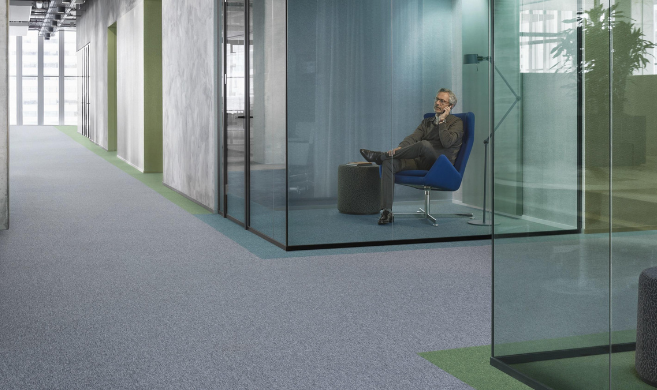Our case traces the brand’s journey to integrate the practices of circular economy. Desso is a leading European premium carpet brand that was acquired by Tarkett, a floor-covering company in 2015. In Europe, an estimated 95-97% of used carpets end up in landfills or burnt in incinerators. In 2022, the company used 145,000 tons of recycled materials in production and collected 115,000 tons of end-of-use flooring through its carpet ‘take-used-carpet-back’ and recycle program between 2010 and 2022.
In Europe, most of used carpets end up in landfills or burnt in incinerators.
Indeed, Desso is among Europe’s first cradle-to-cradle carpet brand in building the necessary infrastructure to support recycling and finding solutions for material recovery after usage. Desso reached a carbon footprint that was at least 6 times lower than the total footprint of its competitors. Such an achievement suggested that the decision to adopt circularity had positioned the firm at the forefront of sustainability within the industry.
Why this case
The case examines cradle-to-cradle economic circularity and its specific challenges and delves into these challenges from the perspective of adapting the entire business model to fit circular economy. Circular economy entails:
1. a re-design of products to make them recyclable, integrating new raw materials and manufacturing processes.
2. a complete re-engineering of the business model: from just selling carpets to a model based on product usage such as pay-per-use, and then recuperate at end-of-life in order to recycle.
3. collaboration with competitors and suppliers: breaking the rules of competition and collaborating for reverse logistics, sharing facilities in different regions, sharing technology in order to facilitate recyclability.
Circular economy entails breaking the rules of competition and collaborating for reverse logistics.
Desso has been a pioneer in circular economy since 2012. This strategic model has paid off for the company. The objectives of the case are to examine:
1. circular economy, and how it differs from linear economy.
2. the challenges in implementing a circular economy business model: it involves a radical change in the business model and reaches profitability only once the product is recycled (sometimes years later).
3. the full benefits of circular economy are achieved when the product is paid for by use/usage and the manufacturer remains the owner of the product: this is called functional economy.
In order to succeed in circular economy, Desso highlights the primordial importance of partnerships with suppliers, competitors, and customers and designing a bespoke business model.









